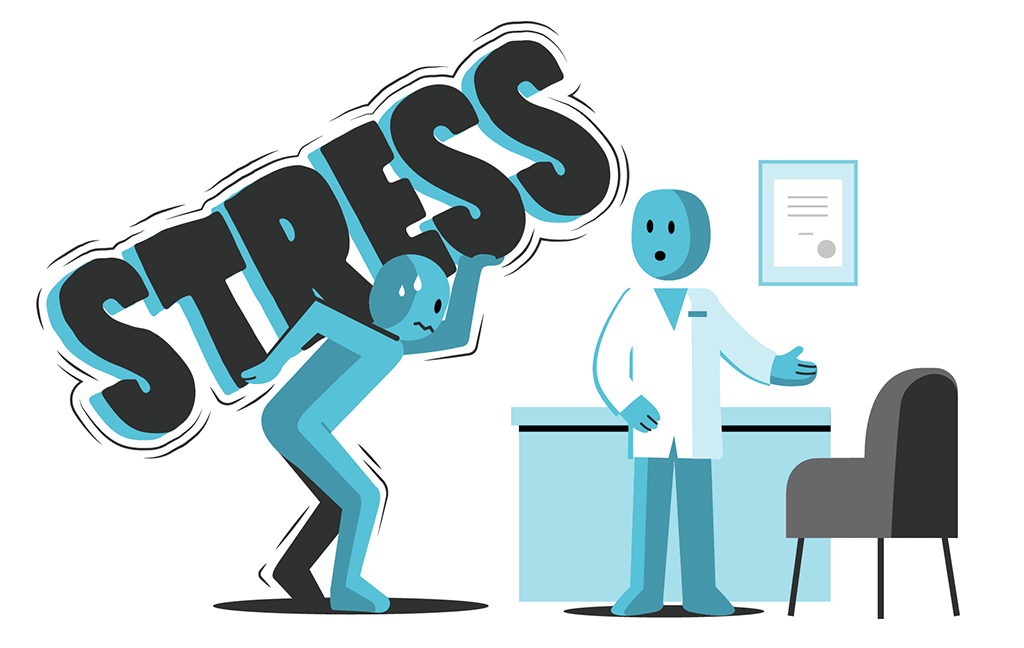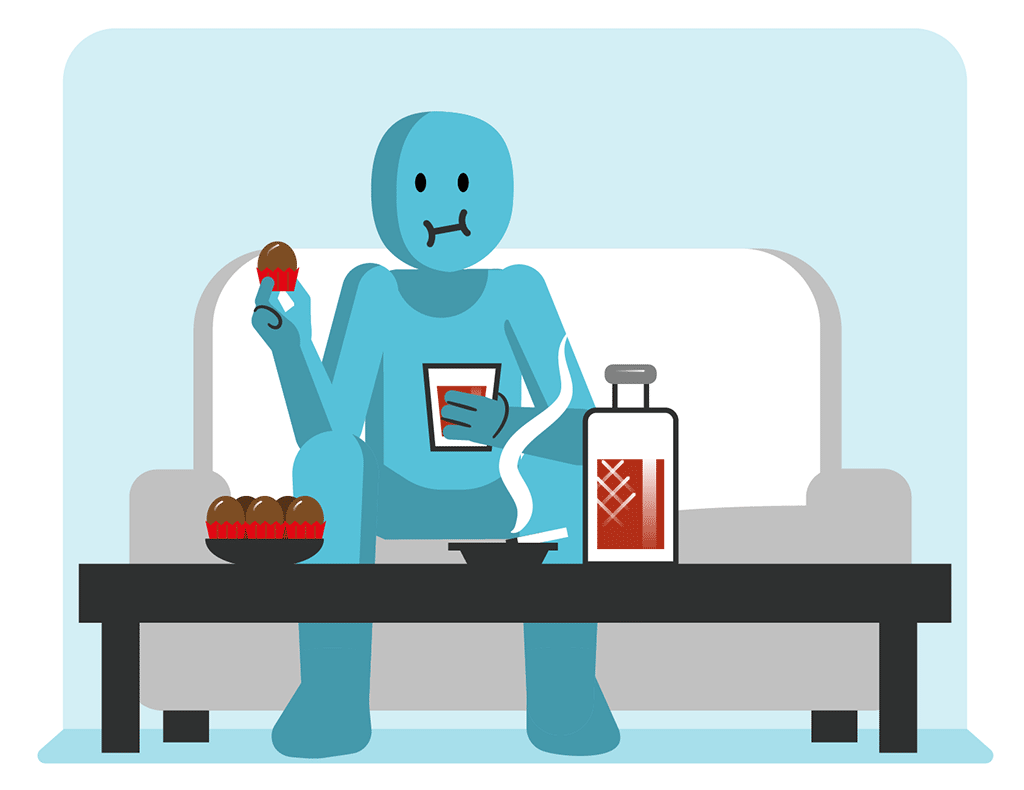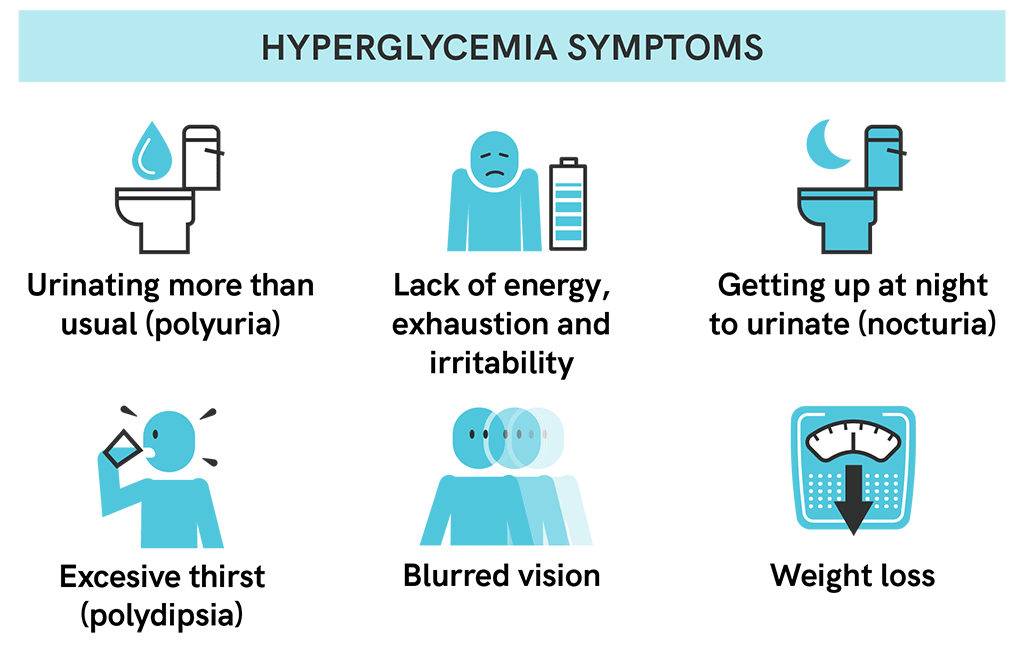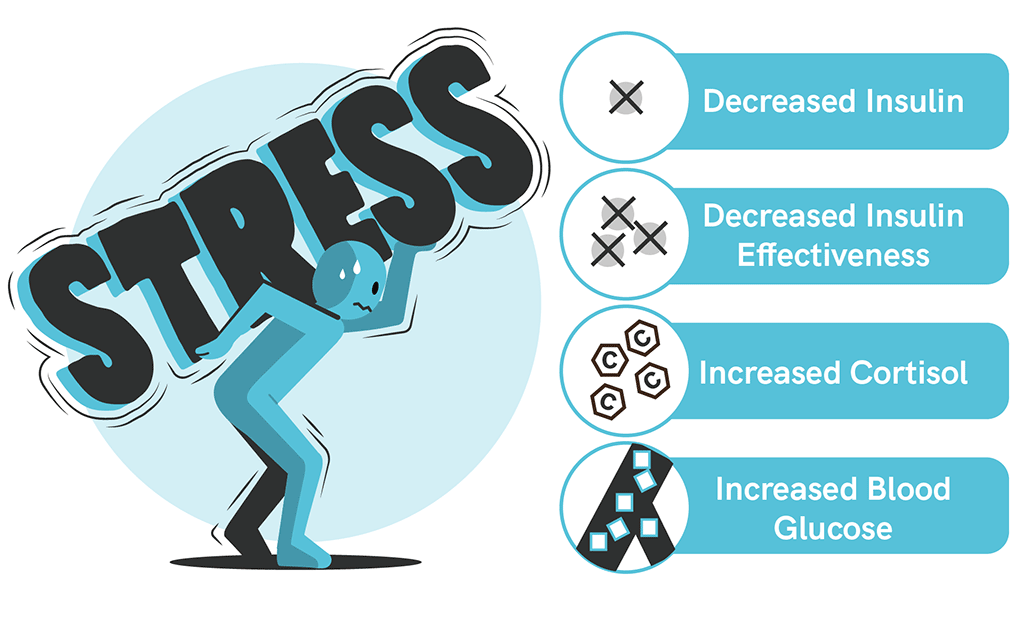What is stress and what causes it?
Stress is a physical, mental, or emotional factor that causes bodily or mental tension.

Stresses can be external (from the environment, psychological, or social situations) or internal (illness, or from a medical procedure).
What are the signs of stress?
Changes in sleep or eating patterns, difficulty concentrating, worsening of chronic health problems and increased use of alcohol, tobacco or other drugs are all signs of stress.

You may feel anxiousness, anger, sadness and/or overwhelmed during times of stress.
How does stress affect my diabetes?
Stress can affect your diabetes in two main ways.
First, stress affects your lifestyle choices. When you are stressed you may not eat as healthy as normal and may seek out unhealthy foods. Stress may cause you to change your routine and avoid activity and exercise. Stress induces some people to start or increase smoking and alcohol use.

As glucose builds in your bloodstream, and your cells are not able to convert glucose to energy, you may experience the following symptoms:

Second, stress changes your hormones. Changes in hormones can decrease the amount of insulin your body produces or reduce the effectiveness of insulin in your body.
Stress can also increase cortisol, which is known as the stress hormone. Cortisol can increase the production of glucose raising your blood glucose levels. Cortisol can also increase your blood pressure making your hypertension worse over time.
Stress also causes an increase in adrenaline which can increase your heart rate and workload on your heart. This can temporarily raise your blood pressure. Stress, over a long period of time, can make your hypertension worse.
